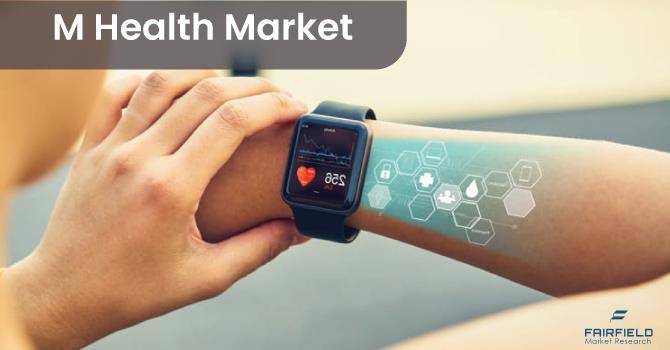mHealth Market
In the fast-evolving landscape of healthcare, mobile health (mHealth) stands out as a beacon of innovation and efficiency. Leveraging the ubiquitous presence of smartphones and tablets, mHealth is transforming the way healthcare services are accessed and delivered globally. With nearly 325 million wearable devices and over 325,000 mHealth apps available worldwide, the potential for revolutionizing healthcare delivery has never been more promising.

For More Industry Insight: https://www.fairfieldmarketresearch.com/report/mhealth-market
Empowering Patients, Enhancing Care
mHealth encompasses a wide array of services, from basic SMS medication reminders to advanced remote monitoring systems tracking vital signs. By enabling consumers to capture their own health data and providing access to information at their fingertips, mHealth is empowering patients to take control of their health and well-being. This shift towards a prevention-based, patient-focused model holds the promise of more effective and personalized healthcare for all.
Overcoming Global Healthcare Challenges
In many parts of the world, healthcare systems are grappling with rising demands and limited resources. Countries like Zimbabwe, with just one doctor per 10,000 people, face significant challenges in providing timely and effective care. mHealth presents a solution to bridge the gap, offering convenient access to healthcare services even in remote or underserved areas. The adoption of supportive healthcare policies is crucial to realizing the full potential of mHealth and ensuring equitable access to quality care worldwide.
Addressing Concerns and Limitations
While the potential of mHealth is vast, it is important to address concerns around patient confidentiality, app safety, and efficacy. mHealth should complement, not replace, traditional healthcare services, and patients should be educated about its limitations. Over-reliance on mobile
health apps can have serious implications, highlighting the importance of informed decision-making and responsible use of technology in healthcare.
Driving Regulatory Changes and Industry Standards
Policies and regulations play a key role in shaping the future of mHealth. Countries like Pakistan and South Korea are pioneering efforts to integrate telemedicine services into their healthcare systems, while regulatory bodies like the FDA and FCC in the US are collaborating to streamline regulatory processes for medical devices. Industry standards, established by organizations like HIMSS and IEEE, ensure interoperability and security in mHealth technologies, paving the way for innovation and growth in the global market.
Unlocking the Potential of mHealth
The proliferation of mobile technologies, coupled with advancements in wireless internet connectivity, is fueling the growth of the mHealth market. From wearable devices to smartphonebased diagnostics, mHealth is poised to revolutionize healthcare delivery on a global scale. Recent studies, like the one conducted by University College London on using mobile phones for COVID-19 testing, underscore the potential of mHealth to address pressing healthcare challenges.
Leading the Charge: Prominent Players in the mHealth Landscape
Companies like Aparito, Athenahealth, and hearX Group are at the forefront of innovation in the mHealth space. Their commitment to developing cutting-edge solutions is driving progress and transforming the way healthcare is delivered and experienced worldwide.
